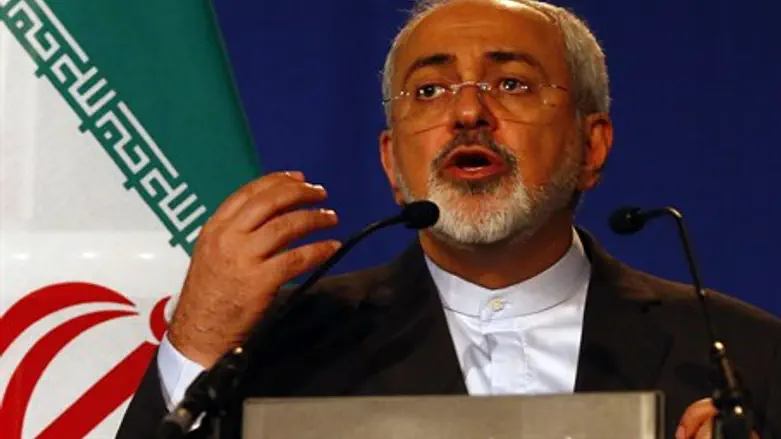
Iranian Foreign Minister Mohammad Javad Zarif headed back to Tehran on Sunday night amid expectations that nuclear talks between Iran and six major powers would go past the June 30 deadline, The Wall Street Journal reported.
A senior Iranian official confirmed Zarif was headed to Tehran and would return to the Austrian capital on Tuesday morning. He did not say who Zarif would meet back home, but Western officials said the trip could involve discussions among Iran’s leadership that may decide the fate of the talks.
Western officials were hesitant about drawing any clear conclusions from Zarif’s decision to return home, according to The Wall Street Journal, saying he likely needed to get fresh instructions and review the latest discussions. But they said it remained unclear whether he would return with enough flexibility to compromise on the final outstanding points.
With the Iranian minister leaving Vienna, it now appears all but certain that talks will run past Tuesday’s deadline, the report noted.
“I think it’s fair to say the parties are planning to stay past the 30th to keep negotiating as we have always said we may have to,” a U.S. State Department official told the newspaper.
The official said it was hard to say at this point how much extra time will be needed to try to complete a deal but that there had been progress in talks over the past few days.
“There are still a number of outstanding issues,” the official said.
Iran and the six powers had been trying to turn understandings reached in April into a permanent accord by Tuesday, but there were numerous indications that the talks had been deadlocked.
On Friday, a senior Western diplomat said that major differences remain between Iran and world powers on several key issues.
"The questions of access and transparency, PMD (possible military dimensions) and sanctions remain extremely problematic," the diplomat said. "We can find an agreement on some points, but on major issues there are still big differences."
Two diplomats said a week ago that the sides are still apart on all main elements of the nuclear deal. Previously, a diplomat who had spoken with a Russian news agency said the talks are “virtually stalled.”
Leaving the talks on Sunday evening, Federica Mogherini, the European Union’s (EU) foreign policy chief and the chair of the six-power group, said foreign ministers would return in the “coming days” hopefully to finish up the negotiations.
She said that “a lot of technical work has been done already and can be done again in the coming hours and days to make sure that the ministers come back to discuss only a couple of highly political points that need political guidance.”
British Foreign Secretary Philip Hammond said the six-power group could still walk away from a deal if Iran didn’t take steps to ensure its path to a nuclear weapon was blocked.
“There are a number of different areas where we still have major differences of interpretation in detailing what was agreed at Lausanne,” he added, according to The Wall Street Journal, referring to an April 2 framework agreement signed in Lausanne, Switzerland.
Meanwhile, on Saturday French Foreign Minister Laurent Fabius outlined France's three key conditions for signing a deal - none of which Iran has met so far.
"What we want is a robust deal that recognizes Iran's right to civil nuclear power, but guarantees that Iran gives up definitively the nuclear weapon," the French minister said.
"For this there are three indispensable conditions: a lasting limitation of Iran's research and development capacity, a rigorous inspection of sites, including military if needed, and the third condition is the automatic return of sanctions in case it violates its commitments," he added.

